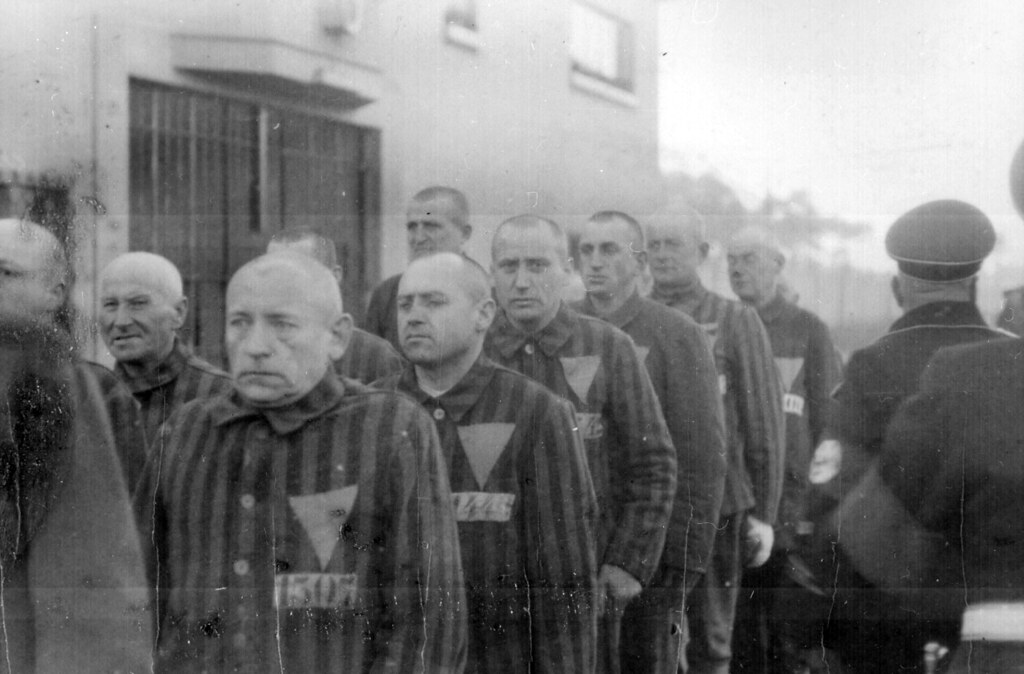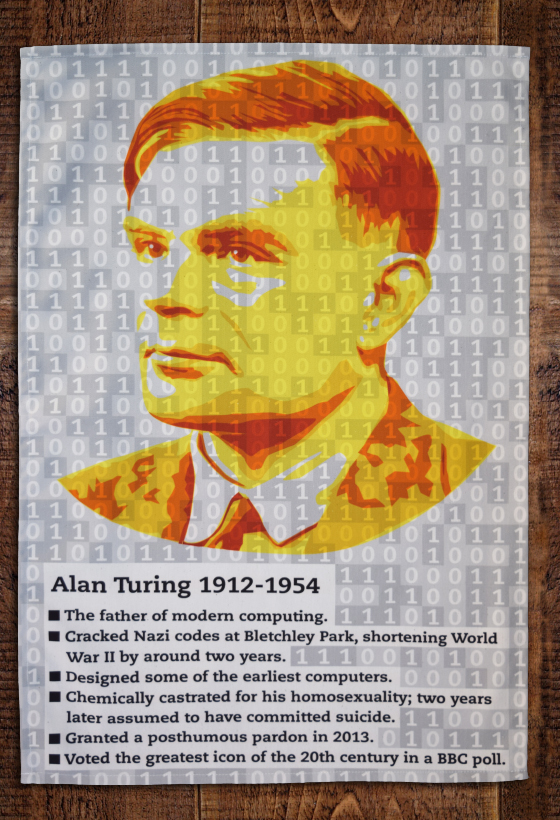We use cookies to make your shopping experience better. By using our website, you're agreeing to the collection of data as described in our Privacy Policy.
Alan Turing: A Hero Betrayed
65 years ago today, codebreaker and WWII hero Alan Turing was driven to the point of suicide by the British state – for the simple crime of being gay.
During the 1930s and 40s, one hundred thousand gay men were arrested in Nazi Germany. Between five and fifteen thousand ended up in the concentration camps.

It’s only fitting, then, that a gay man made one of the biggest individual contributions to the defeat of Hitler and the liberation of all those in the clutches of fascism.
“Absolutely Indispensable”: Turing the Codebreaker
Alan Turing was one of the standout figures at Bletchley Park, the British military’s top secret codebreaking facility in Buckinghamshire.
In the face of the looming Nazi threat, British Intelligence called up the country’s best mathematical minds to help decrypt the German military codes.
At the top of this list was Alan Turing.
A prodigal mathematician, Turing designed some of the earliest computers and is considered the father of modern artificial intelligence.
In 1935, just a year after finishing his undergraduate degree, Turing was elected a fellow of King’s College, Cambridge, when he was only 22 years-old.
A man this clever was exactly what Bletchley Park needed against Hitler.

Moving in on 4th September 1939, the day after Britain declared war on Nazi Germany, Turing quickly became indispensable to the codebreaking campaign.
The work at Bletchley let the Allies effectively see into the future – where German submarines were being sent to pounce on transatlantic food convoys, what was the next target for a Nazi land invasion, and so on.
Keeping the Allies one step ahead, Turing's work saved hundreds of thousands of lives and hastened the defeat of Hitler by months, maybe even years.
According to a fellow cryptographer:
“You needed talent, you needed genius at Bletchley and Turing’s was that genius.”
Turing was responsible for countless innovations in the effort to break the Nazis’ dreaded ‘Enigma’ cipher – and then keep it broken in the face of German improvements.
Speaking about his work in Bletchley’s ‘Hut 8’ against German naval codes, Alan’s friend and comrade Hugh Alexander admitted:
"It is always difficult to say that anyone is ‘absolutely indispensable’, but if anyone was indispensable to Hut 8, it was Turing."
In light of all this, Alan Turing should’ve been treasured as a war hero after 1945.
But it was not to be.
Convicted for being Gay
Hitherto a secret, when Turing's homosexuality came to light in 1952 during a routine burglary investigation at his home in Manchester, the state which he had served so heroically turned on him instead.
With homosexuality between men still a criminal offence in Britain, Turing was prosecuted and convicted for what the state called ‘gross indecency’ under Section 11 of the Criminal Law Amendment Act of 1885.
Wanting to avoid prison, Alan opted instead for a barbaric routine of hormonal drugs designed to reduce libido – an elaborate torture designed specifically for gay men by a criminal justice system as cruel as it was reactionary.
This ordeal drove Alan over the edge. He took his own life on 7th June 1954 – 65 years ago today.
There’s no two ways about it: the British state bullied and tortured Alan Turing to death.
What's more, it would take until 2013 – more than 40 years after homosexuality in Britain was decriminalised – for Turing to be
officially pardoned, thanks to a high-profile campaign led by the likes of Stephen Hawking.
Another five years would go by before all gay men convicted like Turing – none of whom had done anything wrong – were offered amnesty by the British government.
Genius, heroism, self-sacrifice: Alan Turing lived up to some of life's highest virtues in serving his country, only for the British government to throw him under the bus due to contemporary attitudes about who it was okay to love.
Turing's story reminds us that being on 'the right side of history' is about more than just winning a war.
It means living up to the values we claim to defend.



